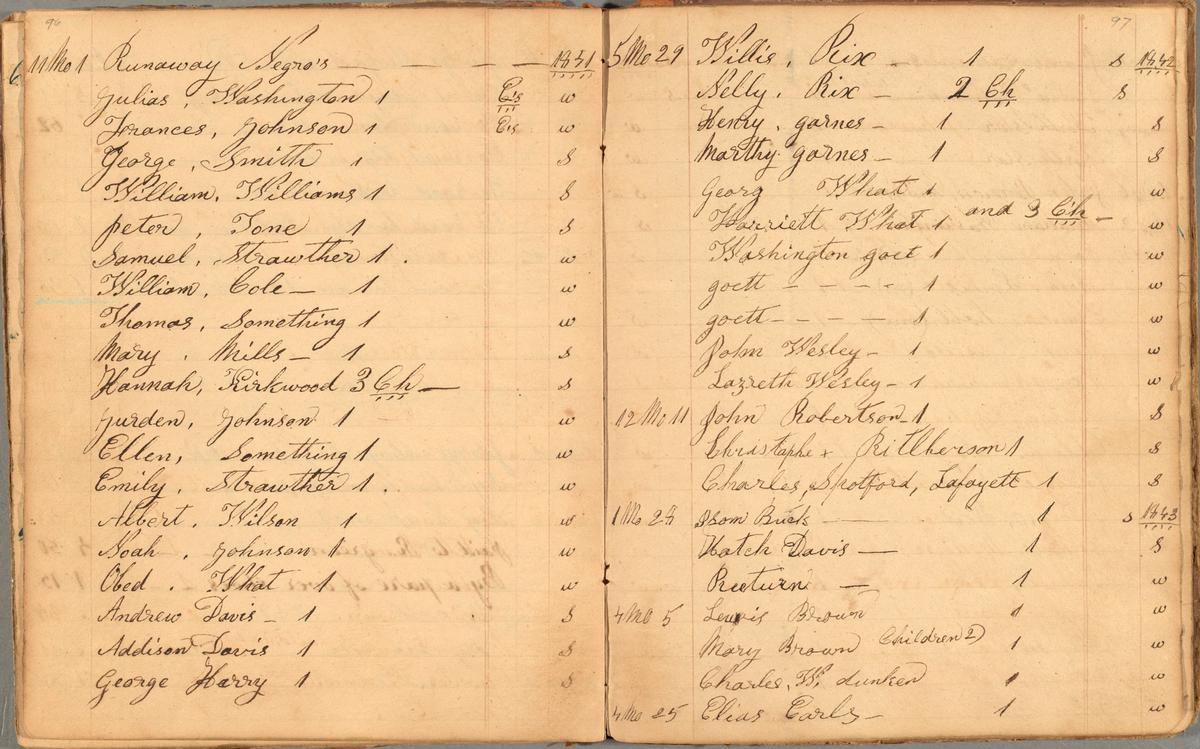The Huntington Library, Art Museum and Botanical Gardens in San Marino, California, has announced that it acquired two major collections related to the history of slavery and the abolitionist movement in the US.
One collection includes the papers of the Quaker abolitionist Zachariah Taylor Shugart, whose Cass County, Michigan, home operated as a stop along the Underground Railroad. Amid these papers is Shugart’s leger, which contains the name of the 137 enslaved men and women who passed through his home on their way to Canada. Some of the entries also noted the number of children in the groups attempting to escape to freedom.
The museum’s second acquisition is a collection of some 2,000 accounts and letters that serve as a record of Dickinson & Shrewsbury salt making operation, founded in 1808 in what’s now West Virginia. The records provide insight into an industry that once relied heavily on slave labour, and these documents shine light on the lives of enslaved and free black Virginians, including the family of the educator and Civil Rights leader Booker T. Washington. Documents in this collection also include bills of sale for slaves, auction records, and records of loans of enslaved men and women.
“These two important acquisitions highlight the complexities of documenting America’s ‘peculiar institution’,” says Olga Tsapina, the curator of American history at the Huntington, which is already home to the ledger of abolitionist John Brown. “The operators of the Underground Railroad refrained from keeping records. They knew perfectly well that they were breaking federal law that required that they help ‘deliver up’ the fugitives from slavery to their masters. The only reason Shugart entered the names of the people he and his friends helped was because it was his habit to keep meticulous records of everything.”
“In contrast, people who lived off the system of legalised human bondage did keep detailed documentation,” Tsapina adds, speaking of the saltworks’ records. The records of an industrial enterprise differ from those generated by a plantation that are usually limited to individual bills of sale, estate inventories or an occasional mention in a letter. The Dickinson-Shrewsbury, however, papers contain numerous accounts, contracts, bills, invoices and other documents that kept track of thousands of enslaved men, women, and children. "The collection shows that slavery was not limited to the plantation economy."


